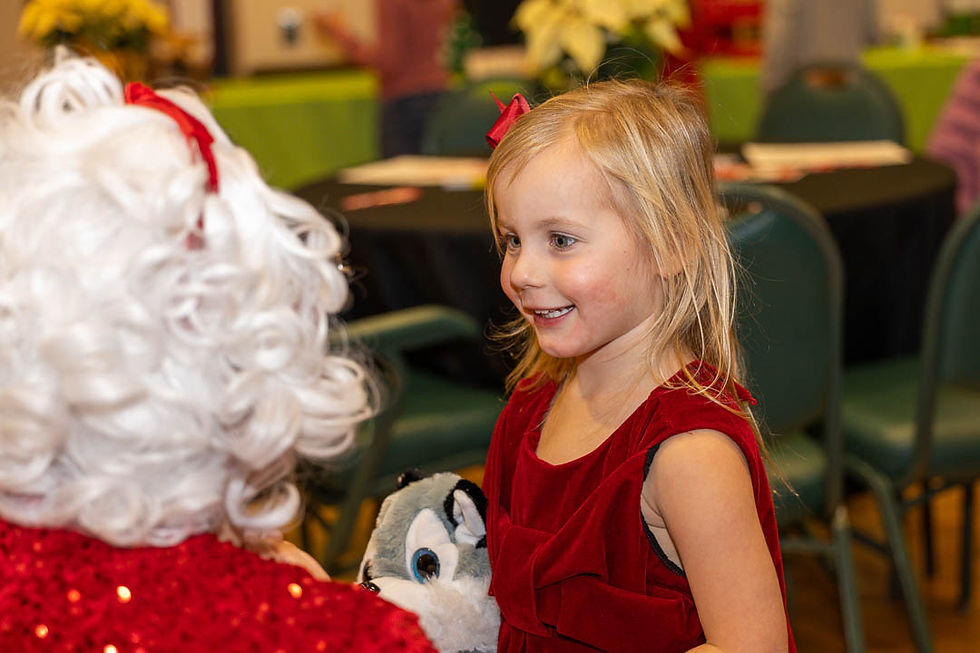Battalion Chief Reflects on a Quarter Century on the Front Lines
- David A.F. Sweet
- Oct 27, 2022
- 3 min read
By David A. F. Sweet Matt Penar has been a Lake Forest Fire Department Battalion Chief for almost six years and has worked in the department for a quarter century. When he was 5 years old, he sat on Santa’s lap and asked for a smoke detector for Christmas. “My Mom always says she should have known then that I was going to be a firefighter,” Matt noted. Matt spoke with Lake Forest Love recently about his career. What are the duties of the Battalion Chief?
I have the best job! I get to lead -- with the help of my two Lieutenants -- one of three highly motivated, smart, well-trained shifts of firefighter/paramedics. It’s amazing to work with a group of talented people who enjoy their job.

"Everyone in the Lake Forest Fire Department is a paramedic -- good thing, because we are getting more ambulance calls now than when I started," says Matt Penar. What are the main differences between this role and others in the department?
I should probably tell you about our rank structure. We have a Fire Chief, a Deputy Chief, an Administrative Battalion Chief and three Battalion Chiefs (one for each of the three department shifts or platoons). Each shift also has two Lieutenants and seven firefighters. The Battalion Chief is the highest-ranking fire officer on the 24-hour shift, as opposed to the higher-ranking Fire Chief, Deputy Chief, and Administrative Battalion Chief who work “normal” hours Monday-Friday. Typically, the Battalion Chief is the Incident Commander at emergency scenes in Lake Forest. What are the main challenges a Battalion Chief faces?
One of the main challenges -- but it comes with the job -- is that every day there is something that changes your plan for the day. We have a weekly schedule that sets a framework for the day. It almost never happens the way I plan. There’s always something -- a call, multiple calls, training, an unexpected task that needs to get done, a vehicle that goes out of service for maintenance. It is also one of the cool parts of the job too. Every day is different.
What stories can you share about heroism in the field?
I see our people do the extra every day. The best part is we don’t have to tell them to do it. I think it’s part of who they are and why they got into this career. I see them living up to our core values of Trust, Integrity, Respect, and Excellence all the time.
In what ways has firefighting changed since you got involved?
Firefighting has changed quite a bit over 25 years. The principles are still the same -- put the wet stuff on the red stuff. UL Solutions and the National Institute of Standards and Technology are applying scientific theory to fire behavior; it’s changing the way we do and view things. Fires are less frequent but more dangerous; the materials in homes burn faster and hotter. There is much less time to react to a fire today. The technology is always evolving and getting expensive -- we even have a drone! We also have a fire pump we can control with a tablet. It’s pretty amazing.
What facts can you share that might surprise residents about the LF Fire Department?
Everyone in the Lake Forest Fire Department is a paramedic -- good thing, because we are getting more ambulance calls now than when I started. The training is more involved. We work closely with Northwestern Lake Forest Hospital. The level of continuing education and training they provide is phenomenal.
We respond to more than just fire and ambulance calls. We have an awesome new boat, so we can much more safely respond to calls on Lake Michigan. Some of our people are involved with county teams for hazardous materials, technical rescue (rope, trench, structural collapse and confined space) and our water rescue divers and sonar team.
Something that would surprise the residents: unlike in many movies or TV shows, pulling a fire alarm doesn’t set off fire sprinklers, and they all don’t go off at once! While I’m at it, you really can’t see very well in a house fire.
Something that would surprise the residents about the LFFD: Yes, we eat at the firehouse, usually lunch and dinner except on Sundays it’s breakfast and dinner. But no, the Fire Department doesn’t buy our meals. We divide the cost.





